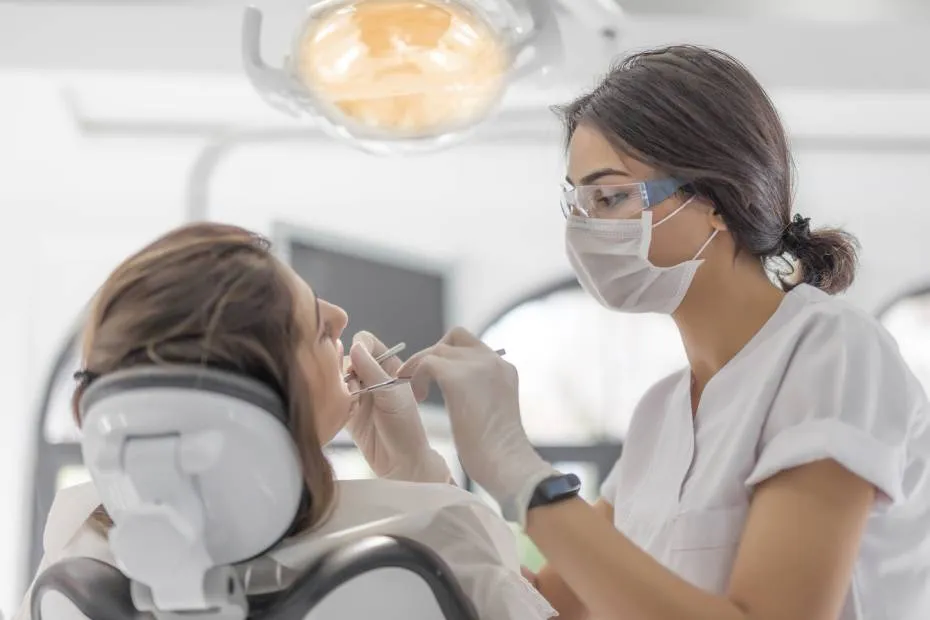One of the most overlooked secrets to getting accepted to a dental school is to apply to the right dentist schools in Canada. It’s about finding a match for your academic accomplishments, values, and career objectives.
Each dental school in Canada has its own academic and non-academic prerequisites, tuition rates, curriculum, and history. Regardless of which one you choose, you can be confident that you will receive an outstanding education and be on your way to being a highly trained dentist!
Some of the dentist schools in Canada are ranks first amongst the world’s best in various major global rankings in a variety of fields. The country has a lot to offer to domestic and international students, from an affordable cost of living to outstanding post-study employment options. It’s no surprise that Canada has become a popular location for people interested in studying dentistry, and we are here to help you navigate the country’s best dental schools that would be the right fit for you.
Table of Contents
Related: Best Dental Schools In Georgia
Why Study Dental Courses In Canada?
There are several reasons why dental schools in Canada are in high demand. Before we go any further, let us understand why Canada is the ideal choice for this subject:
Diverse Courses:
Every dentist schools in Canada offers a range of dentistry courses for students to choose from. The disciplines available to you, regardless of your study level, include oral, dental hygiene, pediatric dentistry, and so on.
Teaching Clinics:
Most dentist schools in Canada operate a teaching clinic, and patients are treated with the help of dental students. This is an excellent practice that allows students to observe live sessions of dental procedures being handled. McGill University is one of several universities that conduct this.
Research-Oriented Courses:
If you attend any dental schools in Canada or pursue postgraduate dental courses for international students, you will notice one thing in common: the course structure. The educational curriculum here is more research-based. This means that students’ learning experiences will contain their perspectives and research on topics, which is a good way to obtain research-based study knowledge.
Established Alumni Community:
The majority of alumni from dentist schools in Canada have gone on to become well-known dentists, surgeons, and other professionals. During your studies, they serve as valuable networks to assist you in advancing your career. Engaging with them also provides students with guidance on how to integrate their learning with the current dental professional demands.
Eligibility Criteria & Admission Requirements For Dentist Schools In Canada
When applying to the best dentist schools in Canada, a set of eligibility requirements must be met. This prerequisite varies for each university; however, an essential standard is followed. Admission criteria for dentistry studies vary depending on the study level chosen. We’ve listed them in detail below:
Undergraduate Dental Studies
- Three years of postsecondary study.
- Minimum of 70% in all university coursework.
- Passed the expected CASPer test (Computer-Based Assessment for Sampling Personal Characteristics).
- Minimum score on the Canadian Dental Association’s Dental Aptitude Test (DAT).
- The minimum grade for the necessary science courses. Biology: 6 credits of introductory biology coursework, including labs. Chemistry: 6 credits in general/physical chemistry with laboratories, Physics- 6 credits of beginning physics coursework, including labs
- Pass an English Proficiency exam if required: IELTS 6.5 with no band less than 6.0, TOEFL iBT- overall 90, PTE- overall 65.
Graduate Dental Studies
- Bachelor’s degree in BSC, DDS, or an equivalent degree
- GPA: 3.0 or 3.3 out of 4.0
- Work Experience
- Pass the English Proficiency Exam.
Postgraduate Dental Studies
- Bachelor’s + Master’s degree
- GPA: 3.0 out of 4.0.
- Pass the English language proficiency test (IELTS- 7.5 with a minimum of 6 on each band, TOEFL iBT- minimum of 95 with 21 in each part).
Diploma in Dental Studies
- OSSD or similar.
- Pass the English language competence test: IELTS-5.5 with a minimum of 5 on each band, TOEFL iBT-minimum of 60 with 18 in each part.
- Passed Grade 11 or 12 in Math/Biology or Chemistry/Physics.
- 30 credit hours of study to be completed.
List of Dentist Schools in Canada
10 dentist schools in Canada offer approved dental programs. Each dentistry school has its own academic and non-academic requirements, tuition rates, curriculum, and history.
Regardless of which one you choose, you can be confident that you will receive an outstanding education and be on your way to being a highly trained dentist! In this article, we will look at the list of Canadian dentistry schools and provide information about each one.
1. University of Alberta:
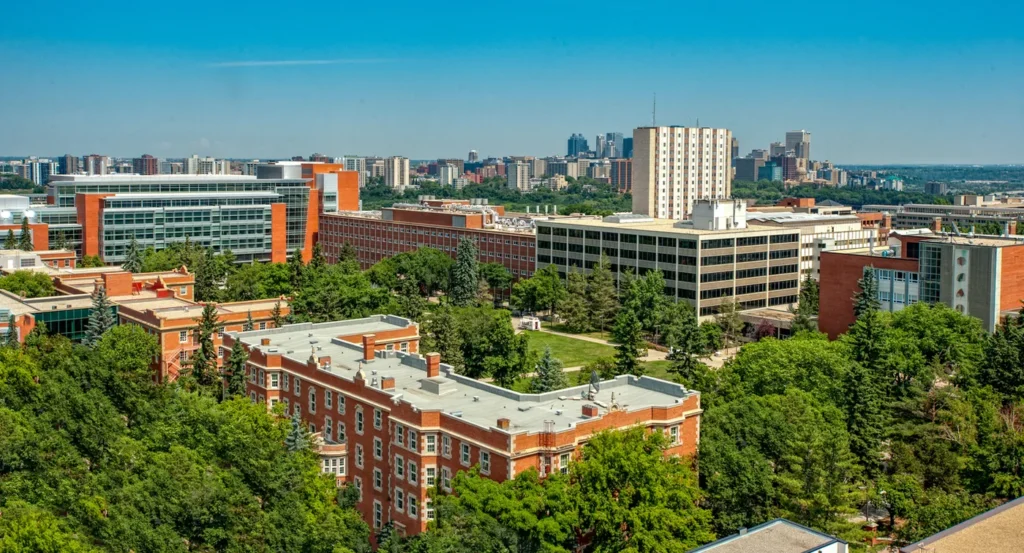
The University of Alberta (UofA) School of Dentistry offers a four-year curriculum leading to a Doctor of Dental Surgery (DDS) degree, with the goal of ensuring the community’s well-being as it progresses. It also provides continuing education to broaden one’s horizons after graduation, an elective postgraduate residency, and a variety of master’s and PhD programs.
In the first two years of the program, dental students follow an integrated curriculum that covers anatomical, physiological, and other health systems in collaboration with the University of Arizona’s medical school, as well as pre-clinical practice and hands-on clinical experience. The last two years have been spent increasing clinical practice while also attending lectures and laboratories on topics such as orthodontics, pediatric dentistry, and others.
- Location: Edmonton, Alberta.
- Language of instruction: English.
- Program length: four years.
- Class size: 30.
- Enrollment Rate: 8%
- Qualifying/Degree Completion Programme: Yes
- Email: admissions@dentistry.ualberta.ca.
- Phone Number: (780) 492-1319
2. University of British Columbia:
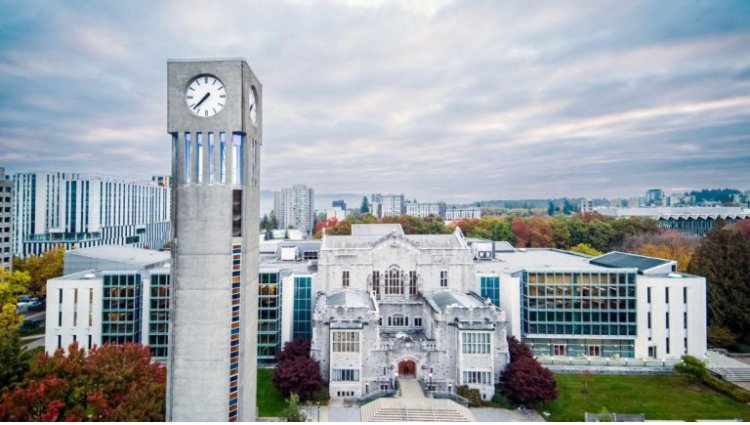
The University of British Columbia’s (UBC) Faculty of Dentistry offers a four-year program leading to a Doctor of Dental Medicine (DMD) degree. Its curriculum includes hybrid problem-based learning (PBL) in small groups, case-based and blended learning activities, as well as more traditional lectures and clinical experiences, all with an emphasis on self-directed learning.
Beginning in the first year, students have the opportunity to improve their psychomotor abilities while visiting patients under supervision. Following graduation, students can further their expertise through UBC’s continuing dental education courses, general practice and oral medicine + pathology residencies, or MSc/PhD programs.
- Location: Vancouver, BC.
- Language of instruction: English.
- Program length: four years.
- Class size: around 60.
- Enrollment Rate: 15%
- Program for Qualification/Degree Completion: No
- Phone Number: (604) 822-7566
3. University of Manitoba:
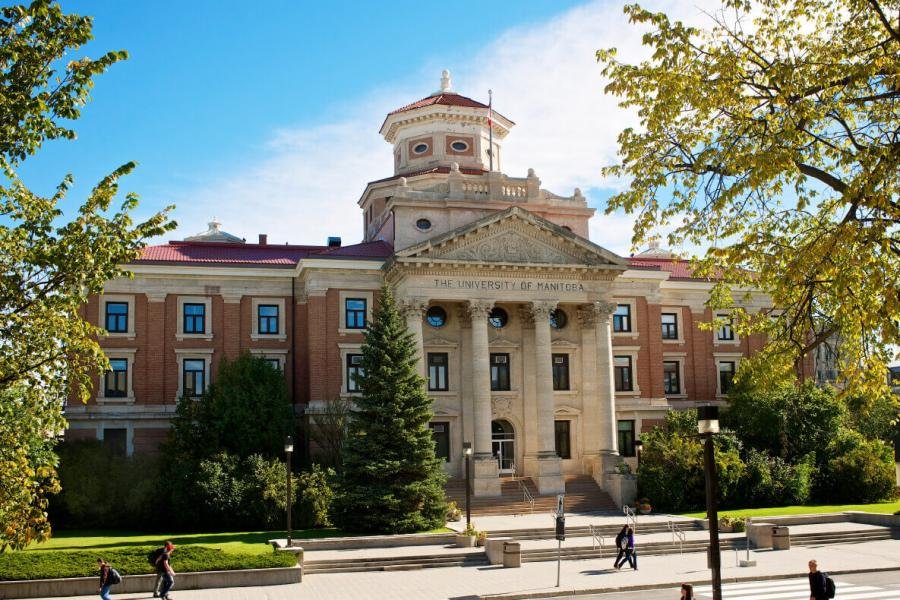
The Dr. Gerald Niznick College of Dentistry at the University of Manitoba (UofM) offers a four-year curriculum that leads to the Doctor of Dental Medicine (DMD) degree. Its hands-on program emphasizes knowledge of core biological, behavioral, and clinical sciences, as well as cognitive and behavioral abilities and professional and ethical values required for practice.
Highlights of the program include clinical experience beginning in the first year, community service learning to enhance access to dental care, foreign exchange opportunities, and the option to conduct research during the summers, all of which lead to a Bachelor of Science in Dentistry. Furthermore, these students may be invited to pursue a dual PhD alongside their DMD.
- Location: Winnipeg, Manitoba.
- Language of instruction: English.
- Program length: four years.
- Class size: 29.
- Enrollment Rate: 11%
- Qualifying/Degree Completion Programme: Yes
- Email: recepcss@umanitoba.ca.
- Phone Number: (204) 789-3631
4. Dalhousie University:
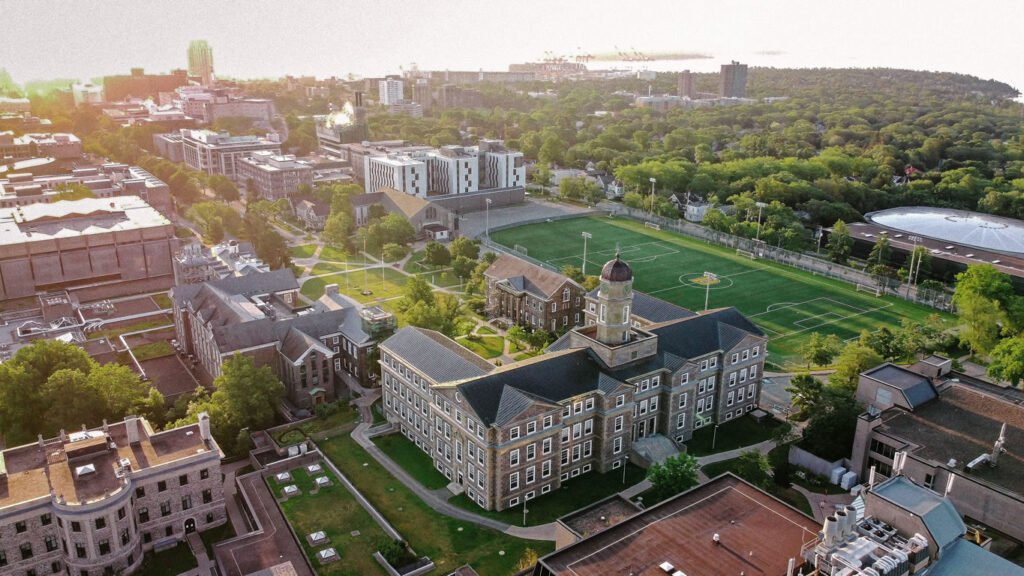
Dalhousie University’s Faculty of Dentistry offers a four-year curriculum leading to a Doctor of Dental Surgery (DDS) degree. Throughout the degree, students are taught approaches for prevention, diagnosis, and treatment, with an emphasis on clinical practice beginning in the first year.
At present, the faculty is working to enhance dental care access through outreach clinics. As the training advances, topics covered include maxillofacial surgery and complete patient care.
- Location: Halifax, NS.
- Language of instruction: English.
- Program length: four years.
- Class size: 40.
- Enrollment Rate: 9%
- Qualifying/Degree Completion Programme: Yes
- Email: admissions.dentistry@dal.ca.
- Phone Number: (902) 494-2824
5. University of Toronto:
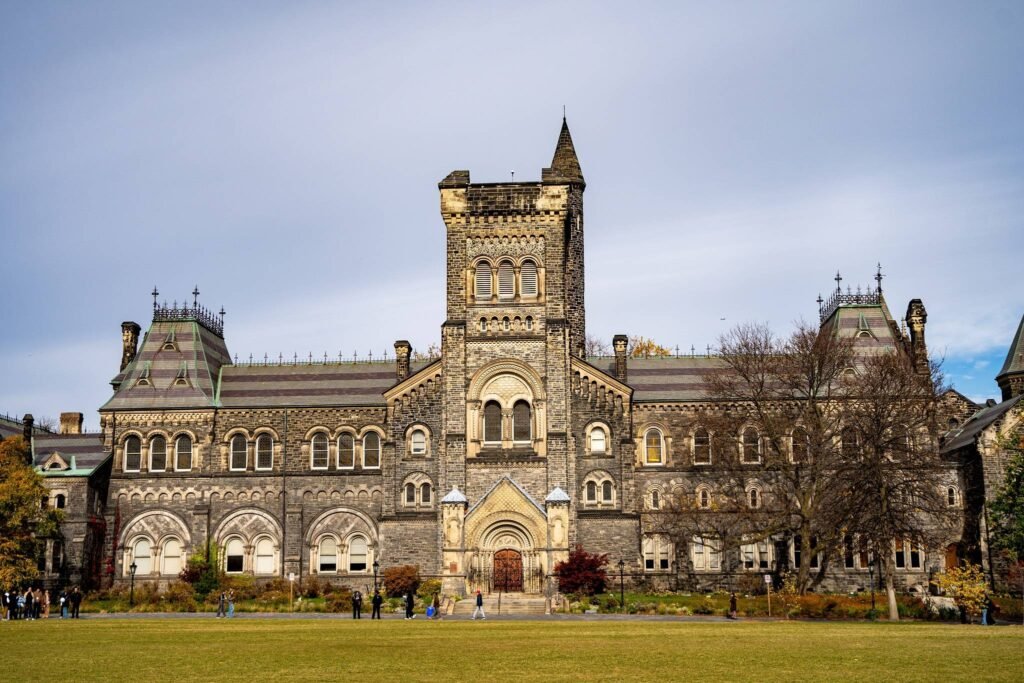
The University of Toronto (UofT) provides a four-year curriculum leading to a Doctor of Dental Surgery (DDS) degree. During the first two years, students study the principles of dentistry, basic science, and diagnostics. In the latter two, students can treat patients at one of 14 dental clinics or through community service learning activities.
As Canada’s largest dental school, it is the only one that provides clinical training in all ten dental specialties (dental anaesthesia, dental public health, endodontics, oral pathology and oral medicine, oral and maxillofacial radiology, oral and maxillofacial surgery, orthodontics, pediatric dentistry, periodontics, and prosthodontics).
It has a rich history, is highly ranked, and offers numerous outreach programs around the world. Students may also choose to specialize through MSc or PhD programs.
- Location: Toronto, Ontario.
- Language of instruction: English.
- Program length: four years.
- Class size: 96.
- Enrollment Rate: 17 percent
- Qualifying/Degree Completion Programme: Yes
- Email: admissions@dentistry.utoronto.ca.
- Phone Number: (416) 864 8113
6. Western University:
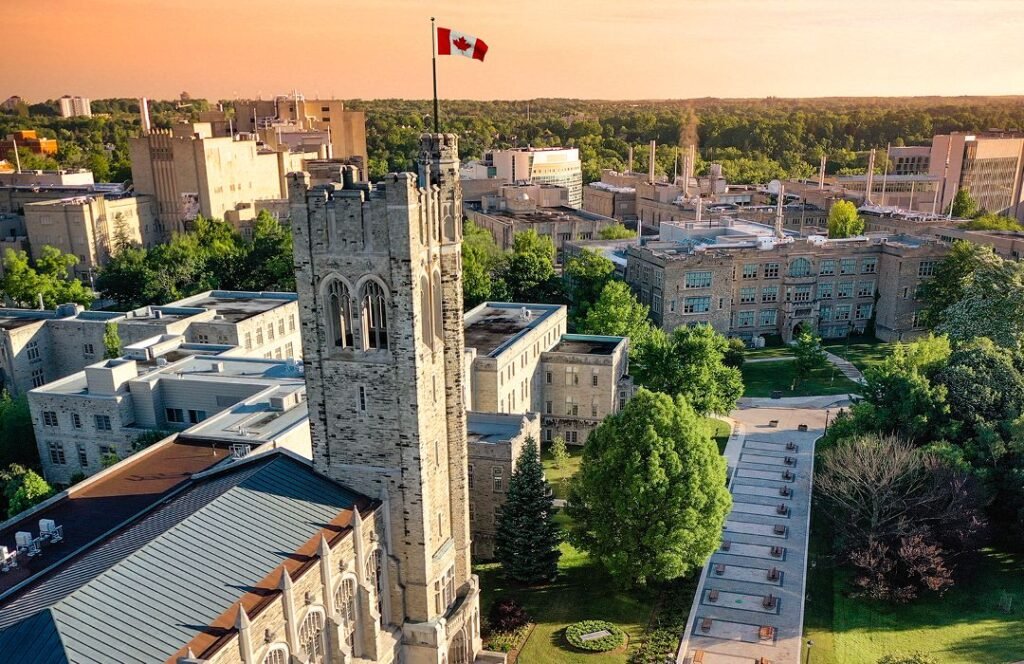
Western University’s Schulich School of Medicine & Dentistry provides a four-year curriculum leading to a Doctor of Dental Surgery (DDS) degree. The first year begins with basic and clinical sciences, increasing to an emphasis on clinical practice as students approach their final year. Throughout the curriculum, students engage in case-based learning, with an emphasis on self-directed learning.
Those interested in research can enroll in the Dental Clinician-Scientist (DCS) program, which leads to a joint PhD/DDS. Following graduation, students can continue a residency and earn an MSc in general practice, orthodontics, or oral and maxillofacial surgery.
- Location: London, Ontario.
- Language of instruction: English.
- Program length: four years.
- Class size: 56.
- Enrollment Rate: 10.4%
- Qualifying/Degree Completion Programme: Yes
- Email: admissions.dentistry@schulich.uwo.ca.
- Phone Number: (519) 661-3326
7. McGill University:
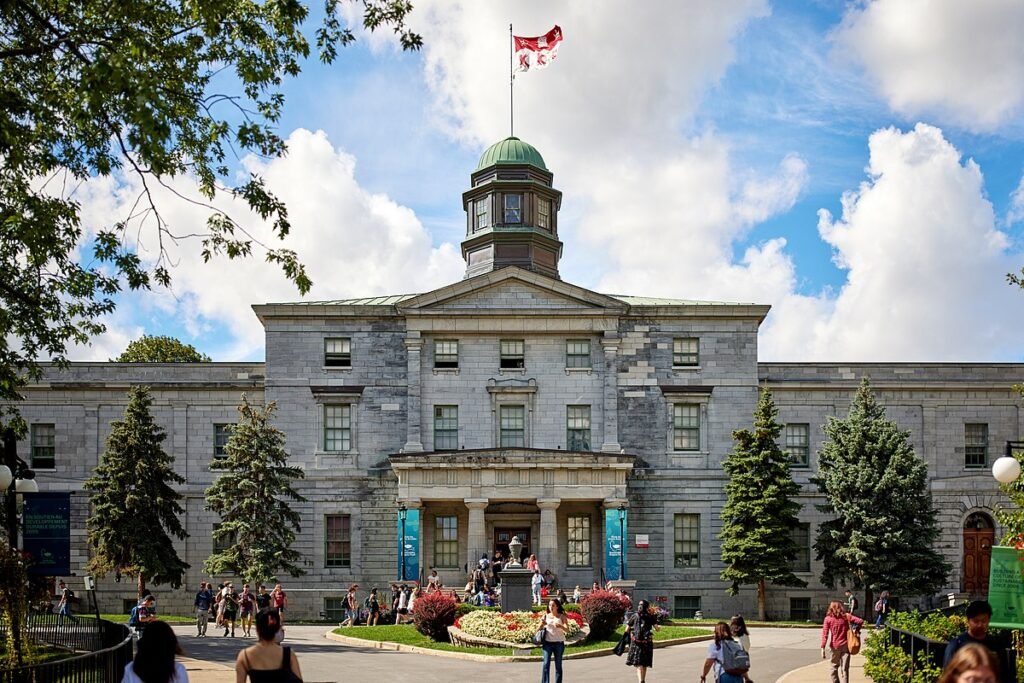
McGill’s Faculty of Dental Medicine and Oral Health Sciences provides a four-year curriculum leading to a Doctor of Dental Medicine (DMD) degree. With an emphasis on innovation, students begin working in the simulation lab, receiving preclinical training and learning foundations alongside the Faculty of Medicine and Health Sciences, before transitioning to clinical practice in the final two years of the program.
Students interested in research might pursue an MSc or PhD in Dental Science and Oral Health Sciences, respectively. Following graduation, McGill provides the chance to further your study through residencies in general practice or oral and maxillofacial surgery, as well as continuing dental education courses.
- Location: Montreal, Quebec.
- Language of instruction: English.
- Program length: four years.
- Class size: ~40.
- Enrollment Rate: 3 percent
- Qualifying/Degree Completion Programme: Yes
- Email: undergraduate.dentistry@mcgill.ca.
- Phone Number: (514) 398-7090
8. Université de Montréal:
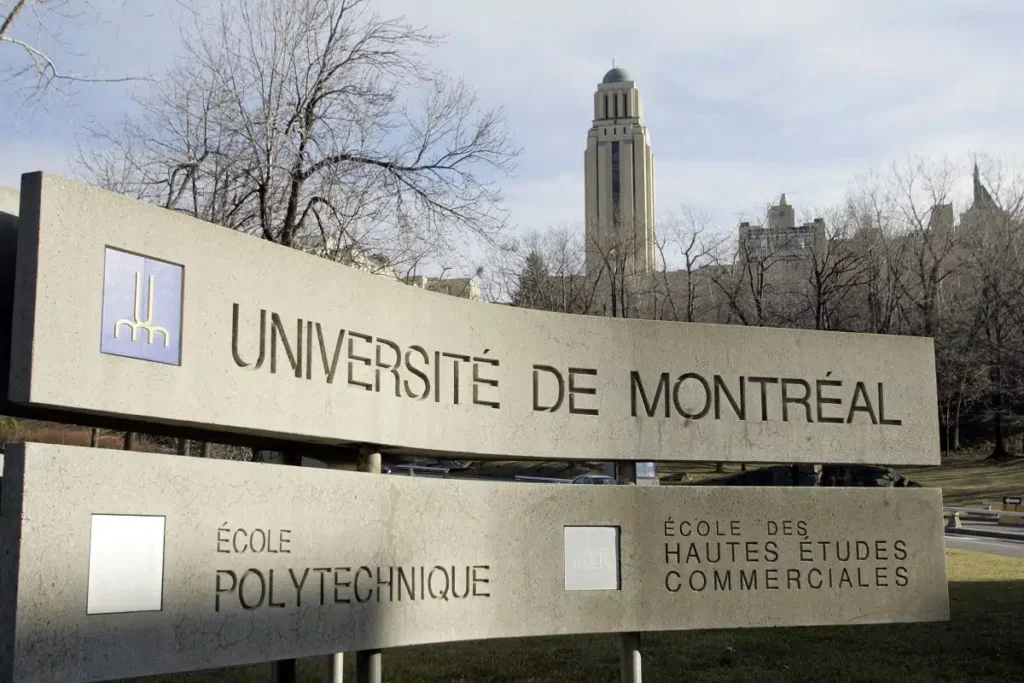
The Université de Montréal, North America’s largest French-speaking dental institution, provides a five-year Doctor of Dental Medicine (DMD) program. To prepare qualified dentists, the school emphasizes interdisciplinarity, oral biology, clinical assessments, and public health.
With the inclusion of a fifth year, all students can now earn a Master’s in Oral Sciences while also conducting research. Students can also participate in study abroad programs and perform obligatory internships.
- Location: Montreal, Quebec.
- Language of instruction: French.
- Program duration: 5 years.
- Class size: 89
- Enrollment Rate: 7%
- Qualifying/Degree Completion Programme: Yes
- Phone Number: (514) 343-6750
9. Université Laval:
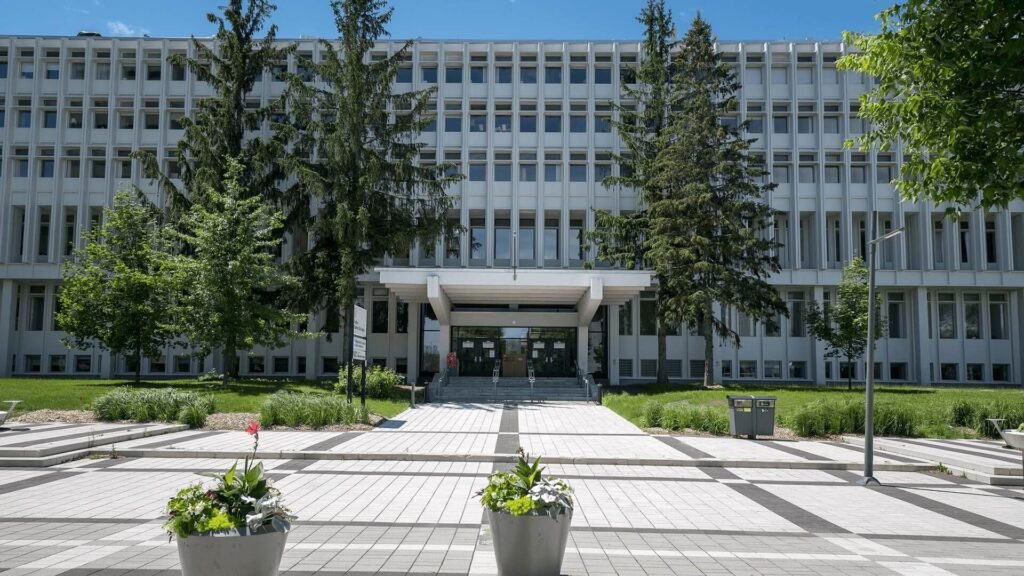
The Faculty of Dentistry at Université Laval offers a four-year French-language program that culminates in the Doctor of Dental Medicine (DMD) degree. The school’s goal is to equip students to satisfy the requirements of the community by focusing on basic, preclinical, and clinical knowledge in prevention, diagnosis, treatment planning, and prognosis.
Students interested in research can also pursue a Master’s in Dental Sciences and graduate with specialized training in oral and maxillofacial surgery, endodontics, gerodontology, or periodontics.
- Location: Quebec, QC.
- Language of instruction: French.
- Program length: four years.
- Class size: 48.
- Enrollment Rate: No information
- Qualifying/Degree Completion Program: No
- Email: fmd@fmd.ulaval.ca.
- Phone Number: (418) 656-2247
10. University of Saskatchewan:
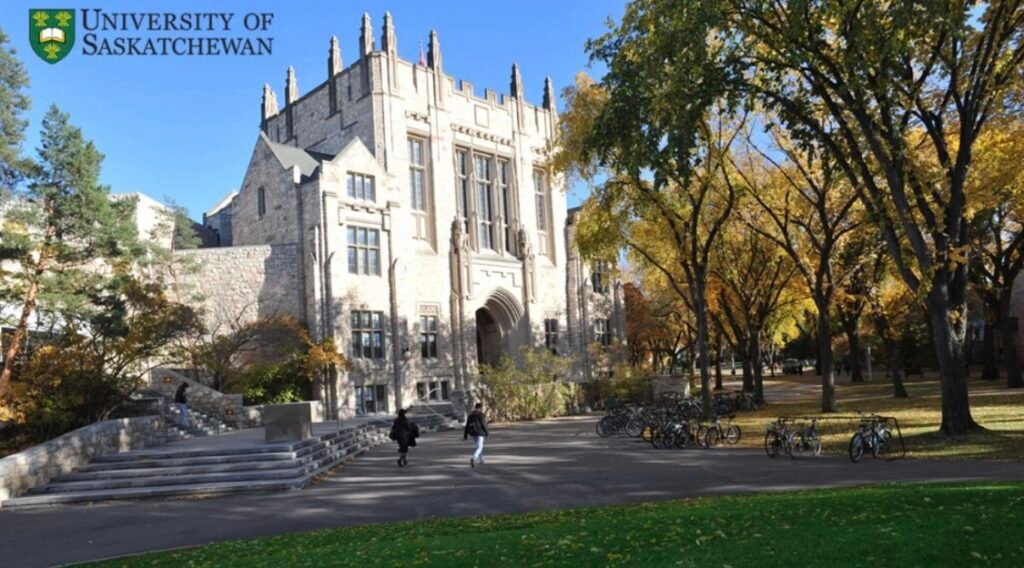
The University of Saskatchewan’s College of Dentistry provides a four-year curriculum leading to a Doctor of Dental Medicine (DMD) degree. Its goal is to prepare its students for all dentistry specialties through early hands-on experience, while also being committed to delivering dental treatment to the community and its marginalized populations.
As the program progresses, students are exposed to more clinical settings. If students are interested in research, they can pursue a Bachelor of Science in Dentistry in addition to their DMD degree. Following graduation, students may pursue a PhD in Precision Oral and Systemic Health.
- Location: Saskatoon, Saskatchewan.
- Language of instruction: English.
- Program length: four years.
- Class size: 34
- Enrollment Rate: 12 %
- Qualifying/Degree Completion Programme: Yes
- Email: dentistry.admissions@usask.ca.
- Phone Number: (306) 966-5225
FAQ’s
How competitive are the dental schools in Canada?
Most dentist schools in Canada are highly competitive, similar to those in the United States. International applicants may face even more difficulties in gaining admission. Review acceptance rates and information on which colleges will accept certain application groups to estimate your chances of admission.
Can I apply to French-language schools?
You will be expected to demonstrate competency in French at the very least, as you will be in frequent contact with francophone patients in a variety of clinical settings. In most cases, applicants from inside the province are given preference.
What GPA do I need to be a competitive applicant?
Some institutions will have cutoff numbers, but the easiest way to determine if your GPA is competitive is to calculate the average application GPA. Generally, you will need to have at least a 3.5 to be competitive.
Conclusion
Canada’s education system has long stood out due to its significant contributions to educational research and development. Today, in this multicultural society, pursuing a research-based subject, such as dental courses, at dental schools in Canada provides international students with greater academic benefits. Now that you have all of the necessary information, it is time to take the next steps.

